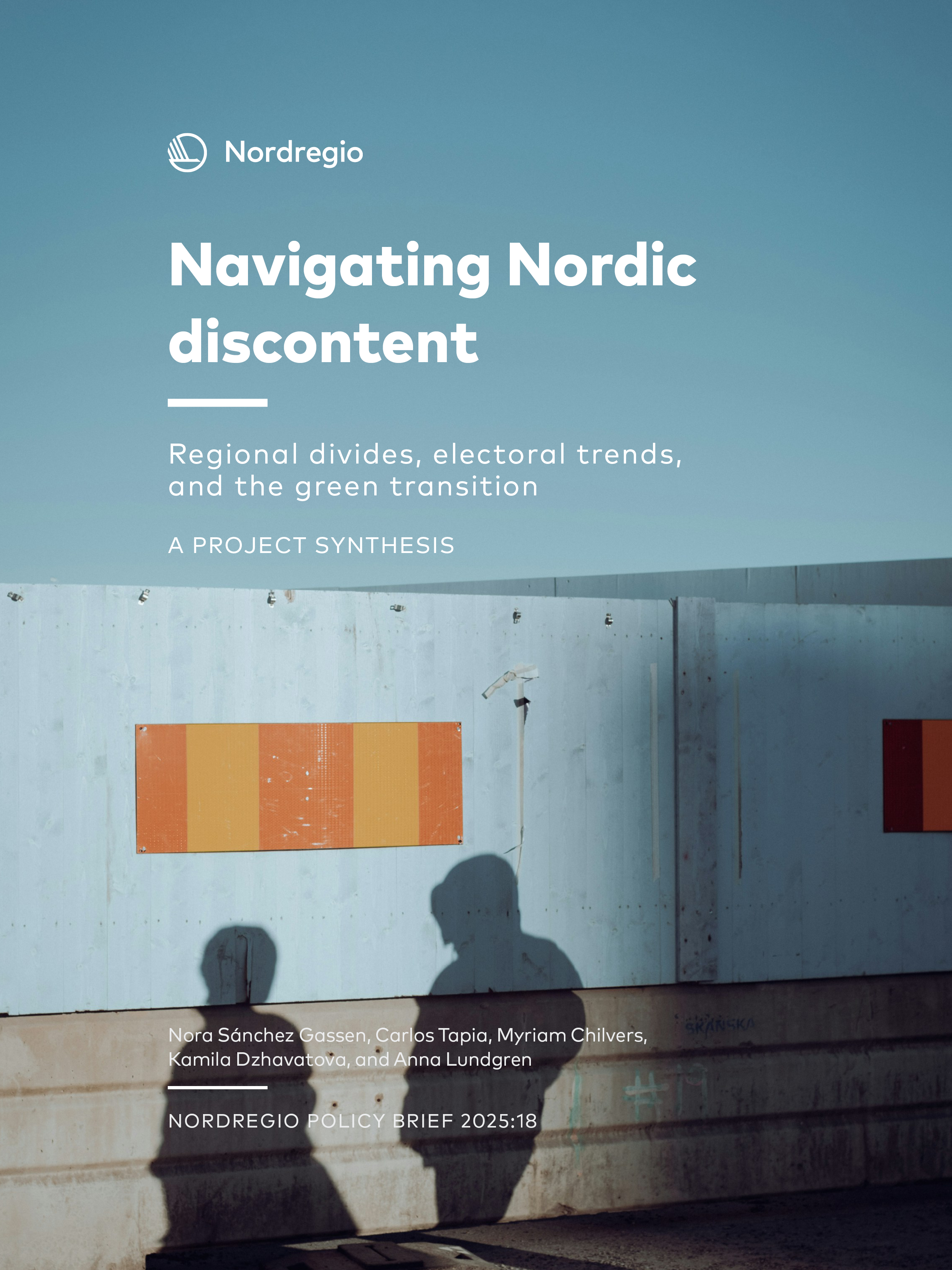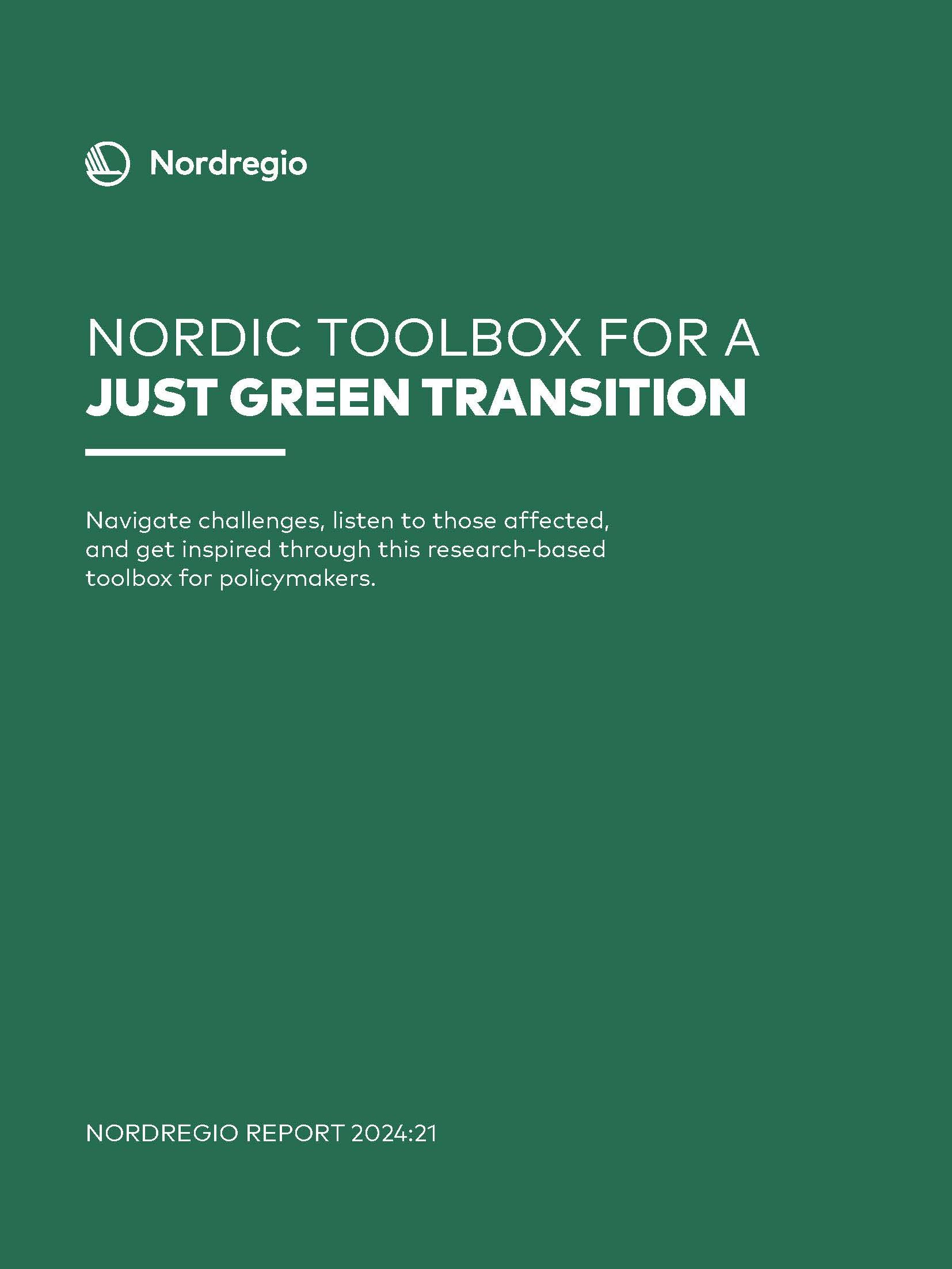The Nordic Region generally has strong public support for mitigating climate change. In fact, nearly half (49%) agree that more public resources should be spent fighting it, even if this means raising taxes. Social acceptance is key for successful climate policies. So what can policymakers do to create policies that will be both effective and gain public support? Nordregio’s research clarifies the issue.
What determines acceptance of climate policies?
Cost. How do policies impact households and regional economies?
Effectiveness. Do people believe policies will deliver meaningful change?
Fairness. Are measures perceived as fair across different groups and regions?
The research also highlights that “social acceptance” is not a fixed concept. Does it mean a simple majority, full consensus, or active support? And who counts – local communities, voters, or the general public? Fairness thus offers a nuanced factor in climate policy acceptance, raising questions of distribution and geography.
Key findings from Nordregio’s research:
- 71% of Nordics believe climate change is a problem.
- Young people, women, and urban residents are more supportive of climate policies than middle-aged individuals, men, and those living in rural areas.
- Workers in carbon-intensive industries worry about job losses, and those reliant on car use worry more about climate policies’ effects on their household economy.
- Local level matters – the impacts of climate policies on the local level and the household economy play an important role in public acceptance.
Despite public concerns, the economic modelling developed in the EnIGG project, shows that implementing key climate measures – increased biofuel use, promoting electric cars, and phasing out coal – would have only moderate overall effects on GDP and household finances. However, regional variation is significant, depending on the local economy’s reliance on fossil-intensive industries.
Forming policies to gain acceptance
How climate policies are designed and implemented affects whether they gain public support. Our research highlights the following strategies (among others) to build acceptance:
✔️ Address local and regional economic impacts – some areas and sectors may face a disproportionate burden.
✔️ Use positive storytelling, transparent communication and vision-building to foster public engagement.
✔️ Early-stage involvement of impacted groups and group-specific impact assessments improve policy outcomes and public acceptance.
✔️ Engage civil society and labour unions to ensure buy-in from diverse stakeholders.
✔️ Explore tailored solutions as different groups face different challenges. For example, certain green policies may unintentionally affect social groups at risk.
✔️ Invest in reskilling and economic diversification to ensure that employees have the right skills and competencies to work in green industries and sectors.
Despite concerns, there is strong public support for climate action across the Nordic Region. The green transition is underway, but progress competes with other political priorities.
The insights are based on two flagship research projects: Not Just a Green Transition (NJUST) and Ensuring Inclusive Economic Growth (EnIGG). Both focus on the green transition, equity, and climate policies in the Nordic Region and use quantitative and qualitative methods.
These insights were presented in a background report on social acceptance of climate policies, published by Swedish Climate Policy Council (Klimatpolitiska rådet). In one chapter, Nordregio researchers Anna Lundgren, Carlos Tapia, and Nora Sánchez Gassen explore Nordic insights on public attitudes towards climate policies and the key factors that influence public acceptance. Read the full background report here.
Explore more in the following Nordregio reports:







